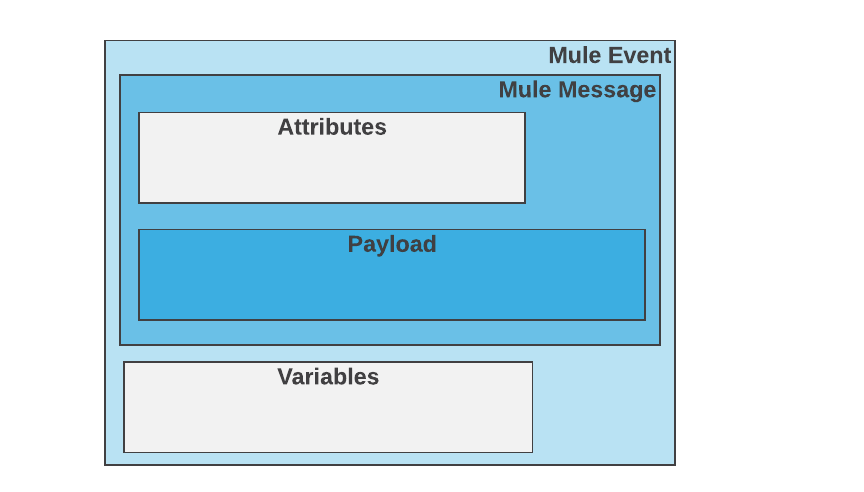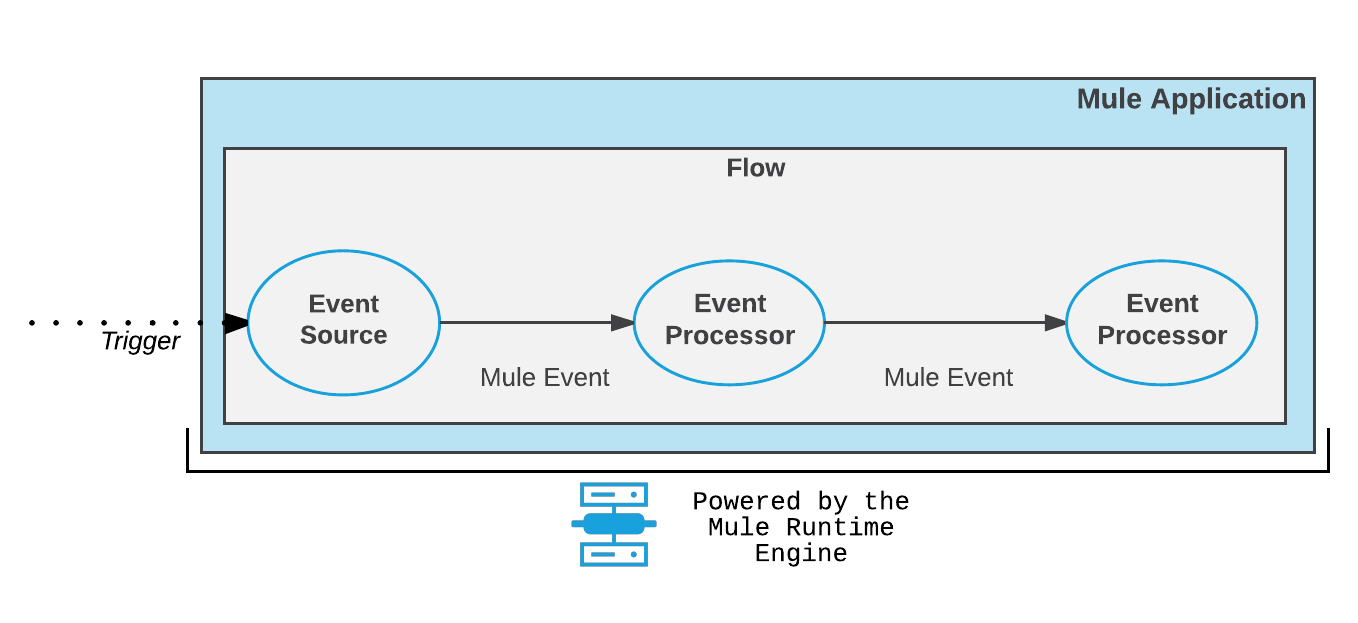
Mule Events
|
Standard Support for Mule 4.1 ended on November 2, 2020, and this version of Mule reached its End of Life on November 2, 2022, when Extended Support ended. Deployments of new applications to CloudHub that use this version of Mule are no longer allowed. Only in-place updates to applications are permitted. MuleSoft recommends that you upgrade to the latest version of Mule 4 that is in Standard Support so that your applications run with the latest fixes and security enhancements. |
A Mule event contains the core information processed by the runtime. It travels through components inside your Mule app following the configured application logic.
Note that the Mule event is immutable, so every change to an instance of a Mule event results in the creation of a new instance.
A Mule Event is composed of these objects:
-
A Mule Message contains a message payload and its associated attributes.
-
Variables are Mule event metadata that you use in your flow.

A Mule event is generated when a trigger (such as an HTTP request or a change to a database or file) reaches the Event source of a flow. This trigger could be an external event triggered by a resource that might be external to the Mule app.

-
A trigger reaches the event source.
-
The event source produces a Mule event.
-
The Mule event travels sequentially through the components of a flow.
-
Each component interacts in a pre-defined manner with the Mule event.



